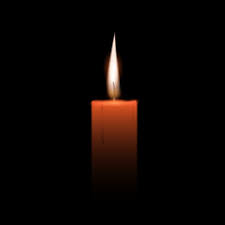Joanna Lynne Hunter, also known as Joanna Lewis, was a 36-year-old woman from Vacaville, California, whose untimely death in 2011 has been the subject of ongoing scrutiny and controversy. On October 6, 2011, she was found hanging in a closet, and her death was ruled a suicide by the Solano County Coroner’s Office. However, her family, particularly her mother Patricia Hunter and brother Joseph Hunter, have consistently challenged this conclusion, citing a history of domestic abuse by her husband, Mark Wayne Lewis, a former Baptist pastor.
Joanna had previously sought restraining orders against Lewis, accusing him of physical abuse. Court documents reveal a pattern of domestic violence, including hospital records and multiple restraining orders. Despite this, the initial investigation concluded suicide, based on the scene and a note found nearby. Her family, however, believes that her death was not self-inflicted but rather the result of foul play.
In 2014, Lewis was arrested and later pleaded no contest to charges related to the firebombing of his ex-girlfriend’s house, an incident that occurred shortly after Joanna’s death. He was sentenced to eight years in state prison for arson and stalking. This development prompted the Solano County Sheriff’s Office to reopen the investigation into Joanna’s death. However, no new evidence emerged to change the original ruling. The case was reopened again in 2019 and, most recently, in 2024, as part of a broader legislative effort to re-examine deaths potentially misclassified due to domestic violence.
Joanna’s brother, Joseph Hunter, a Sacramento Fire Captain, has been a vocal advocate for justice in his sister’s case. He testified in support of California Senate Bill 989, which aims to allow families to request additional reviews of death investigations they believe were mishandled, particularly in cases involving domestic abuse. The bill passed both the Senate Public Safety and Judiciary Committees unanimously, reflecting growing concern over potential misclassifications of domestic violence-related deaths.
The family’s persistent efforts have kept Joanna’s case in the public eye, highlighting the challenges faced by families seeking justice in similar circumstances. They continue to advocate for a reclassification of her death to “undetermined,” hoping that this change will lead to a more thorough investigation and, ultimately, justice for Joanna.
Joanna Lynne Hunter is remembered by her family and friends as a vibrant and compassionate individual whose life was tragically cut short. Her case serves as a poignant reminder of the importance of thorough investigations in cases of domestic violence and the need for systemic changes to protect victims and support their families.



